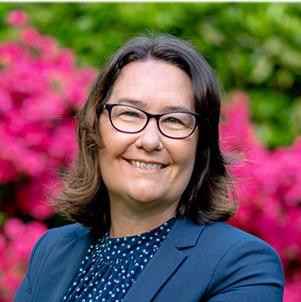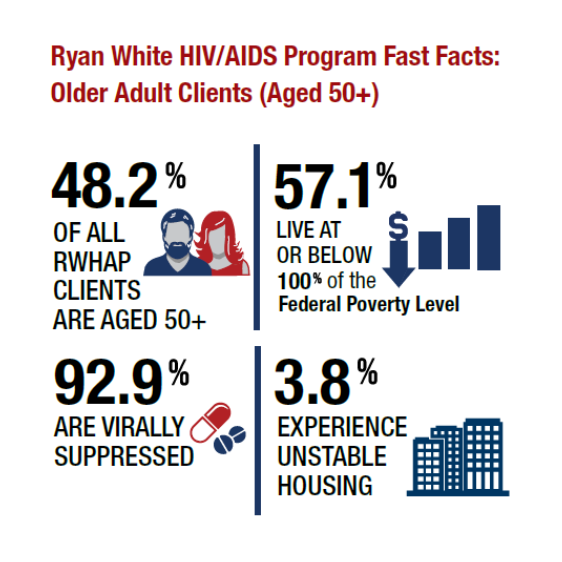
HIV Long-Term Survivors Awareness Day was first observed in 2014. Learn about the 2024 theme (June 5), Mobilize to Thrive: Prioritizing Quality of Life, at HIV.gov and read this reblog I am a Long-term Survivor of HIV - Antigone Dempsey, MEd, (former) Director of the HRSA HIV/AIDS Bureau's Division of Policy and Data, now Associate Administrator of HRSA's Office of Intergovernmental and External Affairs.
To prepare for this blog, I keep asking myself: What does it mean to be a “long-term survivor” of HIV? My feelings, words, and thoughts have been telling me: It’s complex.
I am grateful for surviving, and even thriving, with a family and career I never thought possible; but also, I feel deep grief for those who did not survive this. Being diagnosed with HIV as a young woman, I watched many of my peers dying at ages 19, 20, 21, right in front of me; it was so difficult because they didn’t get the chance to grow into who they were to be. Many died with their families never accepting who they were because they were either gay, bisexual, transgender, or non-gender conforming. To this day, my sadness sits close to the surface.
See Supporting Older People with HIV (HRSA and Partner resources, May 2024)
For me, the work has been to integrate all the phases of the medical and scientific advances with the stages of my life. I have lived with HIV from my early 20s when I was diagnosed in 1990, to now, my early 50s. HIV is written on my body—as someone who was given the earliest drugs, my body still wears these marks. Sometimes I look in the mirror and I feel strong; but some days, I don’t want to see what is reflected. It’s painful.
I have heard these same feelings expressed when listening to people who are aging with HIV in the Health Resources and Services Administration’s (HRSA) Ryan White HIV/AIDS Program (RWHAP). As Director for the Division of Policy and Data in HRSA’s HIV/AIDS Bureau, I have the opportunity to listen to the voices of those we serve and create strategies to respond. I have heard the challenges and also the resilience of people who are aging with HIV, and the need to not just focus on viral suppression—quality of life and the health of the body and mind are just as important. I understand this and live it every day.
I’ve seen much evolution and growth throughout these past 30 years, with key threads woven throughout. For me, one of the most significant occasions was the release of the scientific findings showing that if you are virally suppressed, you cannot sexually transmit the HIV virus to others. I remember so clearly the moment 31 years ago when I was told I was “HIV positive,” instantly feeling the walls close in and thinking, “Oh no, I’m going to die and no one will ever love me or touch me again. I will never have children.” Instantly, I felt the stigma of HIV as my tears rolled down my face—would my family recoil from holding my hand? I still carry the presence of my internalized stigma, but it has greatly lessened knowing that I cannot transmit the virus to others. That weight has been lifted.
Another important thread has been the role those of us who have HIV have played in planning, developing, evaluating, and providing services. The RWHAP serves over half a million people with HIV each year and exists because of the advocacy of people with HIV. In fact, many of the first programs were established by people who had HIV.
We are now moving into a new phase of HIV, looking toward ending the HIV epidemic in the United States by reducing transmissions to under 3,000 people per year. I believe we can meet this goal, but not without addressing the institutional and systemic barriers based on race, gender, age, and poverty. For me and for those of us who have been living with HIV, ending the HIV epidemic also means acknowledging us and the complexities of our experiences, and valuing our contributions to this effort over the past 40 years. It also means continuing to care for those who have survived, thrived, and will continue to live for many more years.
Through sharing my story over the years my hope is that this reduces stigma and helps others tell their own story. When I meet young people with HIV, I can tell them that I was their age when I was diagnosed, and here I am now—I see the impact of my story in their eyes, sometimes surprised, but also, hope. I am grateful for this and for the opportunity to lead policy development, data dissemination, and innovation to ensure that people with HIV can have access to quality care and quality of life. I do it for the names of those who did not survive.
